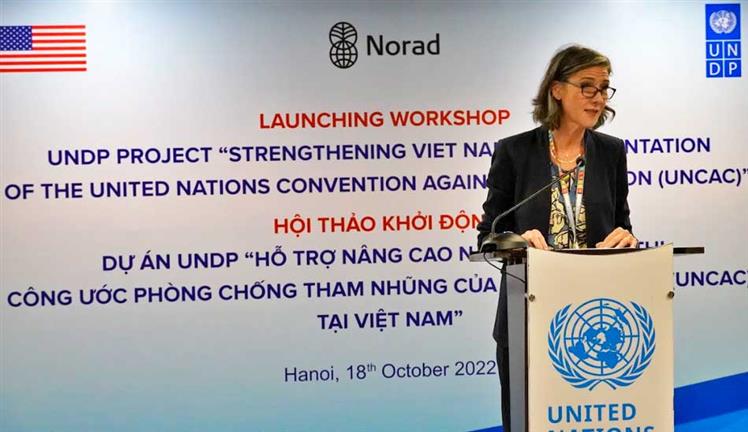The new plan will be developed in 27 months, focusing on the improvement of the legal framework and the application of the law to efficiently undertake the recommendations of the UNCAC on anti-corruption measures and asset recovery.
In addition, it will contribute to improving public governance capacity, transparency and integrity in the field of public health contracting in Vietnam.
In order to develop the project, the UNDP is coordinating with seven entities in Vietnam: the Internal Affairs Commission of the Central Committee of the Communist Party (PCV), the Government Inspectorate, the Ministry of Justice, the Supreme People’s Prosecutor’s Office, the Supreme People’s Court, the Ministry of Health, and the Vietnam Chamber of Commerce and Industry.
During the presentation of the plan, the resident representative of the UNDP, Ramla Khalidi, highlighted the importance of all the parties concerned in the control and fight against corruption, and affirmed that information technology and new technologies will be decisive factors in the fight against it.
According to the Provincial Public Administration and Governance Performance Index, after 10 years of consecutive improvement, until 2021, the level of corruption control in the public area in Vietnam dropped for the first time from 6.90 to 6.88 points, since 2016, when the PCV reinforced the anti-corruption fight.
However, a report on the perception of companies for public procurement presented last June revealed that more than a third considered it necessary to “pay a tip” to increase the opportunity to win contracts. The figure rose to 50 percent for equipment suppliers to public medical centers.
pgh/llp/jcm/mpm










